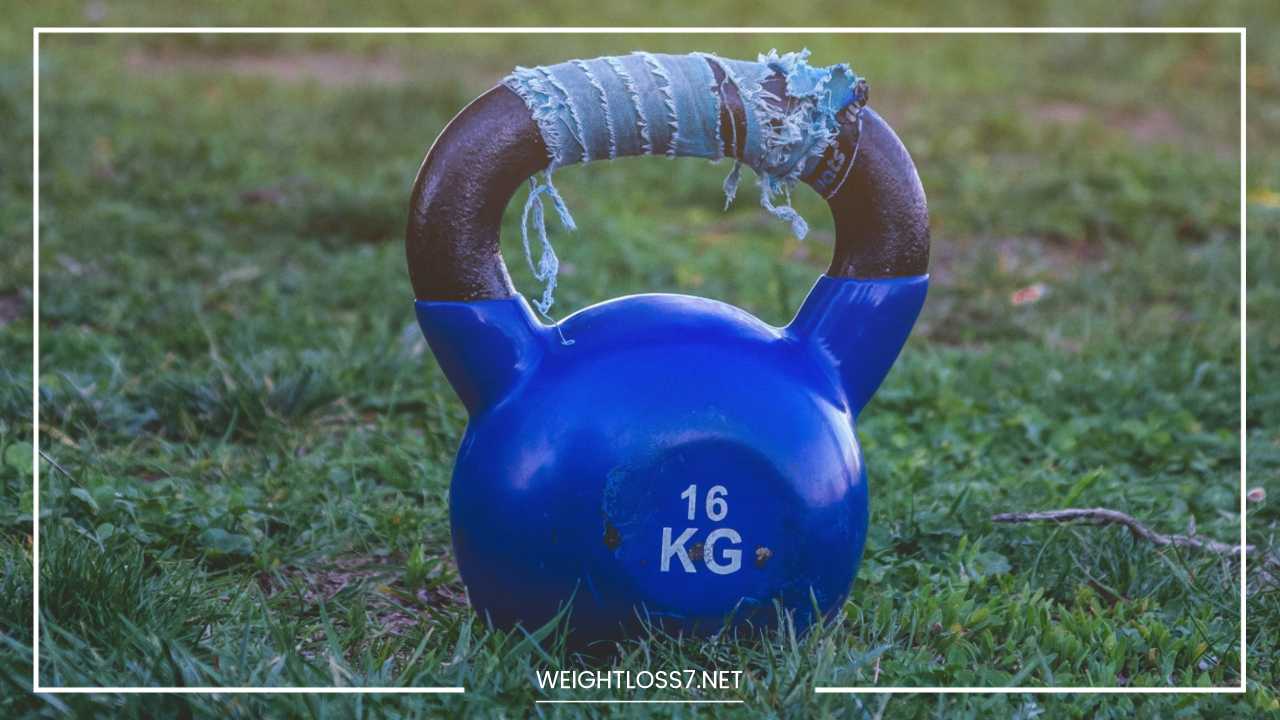Weight Control: Your Guide to Long-Term Success

Weight Control
Shedding Pounds and Gaining Wellness: A Guide to Weight Control
Weight control is a journey, not a destination. It’s about finding a healthy balance between what you eat and how you move your body.
Crash diets and intense exercise fads might offer quick results, but they’re rarely sustainable. This blog post dives into the world of weight control, equipping you with practical strategies for long-term success.
Understanding Weight Management
Weight management refers to the practices and behaviors that help you achieve and maintain a healthy weight. It’s a lifelong commitment that goes beyond just looking good. A healthy weight reduces your risk of chronic diseases like heart disease, type 2 diabetes, and certain cancers.
There’s no magic formula for weight control. It’s a combination of factors, including:
- Diet: What you eat plays a crucial role. Focus on a balanced diet rich in fruits, vegetables, whole grains, and lean protein.
- Physical Activity: Regular exercise helps you burn calories and build muscle mass, which boosts metabolism.
- Sleep: When you’re sleep-deprived, your body produces more ghrelin (the hunger hormone) and less leptin (the satiety hormone), making you crave unhealthy foods.
- Stress Management: Chronic stress can lead to unhealthy eating habits and weight gain. Finding healthy ways to manage stress is key.
Developing a Sustainable Approach
Here are some key strategies to develop a weight control approach that works for you:
- Set SMART Goals: Instead of aiming for unrealistic goals like “lose 10 pounds in a month,” set Specific, Measurable, Achievable, Relevant, and Time-bound (SMART) goals. Aim for a gradual weight loss of 1-2 pounds per week.
- Find Your “Why”: What motivates you to reach your weight control goals? Is it to improve your energy levels, feel more confident, or prevent health problems? A strong “why” will fuel your efforts.
- Make Small Changes: Drastic changes are hard to stick with. Start by making small, sustainable changes to your diet and exercise routine.
- Plan Your Meals: Planning your meals helps you make healthy choices and avoid unhealthy temptations. Cook more meals at home and pack your lunch to control portion sizes and ingredients.
- Mindful Eating: Pay attention to your hunger and fullness cues. Eat slowly, savor your food, and avoid distractions while eating.
- Move Your Body: Find physical activities you enjoy, whether it’s brisk walking, dancing, swimming, or cycling. Aim for at least 150 minutes of moderate-intensity exercise per week.
- Stay Hydrated: Drinking plenty of water throughout the day helps you feel full, reduces calorie intake, and improves overall health.
- Don’t Deprive Yourself: Occasional treats are okay! Deprivation can lead to cravings and binge eating. Aim for moderation and balance.
- Track Your Progress: Monitoring your weight, food intake, and exercise levels can help you stay accountable and motivated. There are many apps and journals available to help you track your progress.
- Seek Support: Don’t go it alone! Surround yourself with supportive people who encourage your weight control goals. Consider joining a weight loss group or working with a registered dietitian or certified personal trainer.
Addressing Challenges
Here are some common challenges you might face on your weight control journey, along with tips to overcome them:
- Lack of Time: Even small pockets of time can be used for exercise. Take the stairs instead of the elevator, do some bodyweight exercises during commercial breaks, or park further away and walk to your destination.
- Unhealthy Cravings: Plan healthy snacks you can grab when cravings hit. Fruits, vegetables with hummus, nuts, or yogurt are great options.
- Emotional Eating: Identify your emotional triggers and find healthy coping mechanisms for stress, boredom, or sadness. Exercise, relaxation techniques, or talking to a friend can help.
- Setbacks: Everyone experiences setbacks. Don’t let them derail your progress. Acknowledge the setback, learn from it, and get back on track with your goals.
Remember: Weight control is a journey, not a race. Be patient with yourself, celebrate your non-scale victories (improved energy levels, better sleep), and focus on developing healthy habits that will last a lifetime.
Additional Tips
- Strength Training: Building muscle mass boosts metabolism and helps you burn more calories even at rest. Include strength training exercises 2-3 times a week.
- Read Food Labels: Pay attention to portion sizes, calories, and sugar content when choosing packaged foods.
- Cook More at Home:This gives you control over ingredients, portion sizes, and the overall healthfulness of your meals.By cooking more at home, you can ensure that you are using healthy ingredients, cooking your food in a healthy way, and eating the right portion sizes for your needs. This can help you to lose weight, improve your overall health, and save money.
Building a Healthy Plate: Food Choices for Weight Control
While exercise is crucial, a healthy diet forms the foundation of successful weight control. Here are some tips for making smart food choices:
- Focus on Whole Foods: Fill your plate with whole, unprocessed foods like fruits, vegetables, whole grains, and lean protein sources. These foods are packed with nutrients, fiber, and keep you feeling fuller for longer.
- Limit Processed Foods: Processed foods are often high in calories, unhealthy fats, sodium, and added sugar. They contribute to weight gain and other health problems.
- Choose Healthy Fats: Don’t be afraid of healthy fats! Include healthy fats from sources like avocados, nuts, seeds, and olive oil in your diet. These fats promote satiety and provide essential nutrients.
- Go Lean on Protein: Protein helps build and repair muscle tissue, which boosts metabolism. Choose lean protein sources like grilled chicken, fish, beans, lentils, and tofu.
- Portion Control is Key: Even healthy foods can contribute to weight gain if eaten in excess. Use smaller plates, measure out portions, and avoid mindlessly snacking.
Making Smart Swaps
Here are some simple swaps you can make to reduce calorie intake and improve your diet:
- Swap sugary drinks for water, unsweetened tea, or black coffee.
- Swap fried foods for baked, grilled, or steamed options.
- Swap white bread, pasta, and rice for whole-wheat alternatives.
- Swap sugary snacks for fruits, vegetables with hummus, or a handful of nuts.
- Swap high-fat condiments like mayonnaise for low-fat yogurt or salsa.
Don’t Forget Fruits and Vegetables
Fruits and vegetables are champions of weight control. They’re low in calories, high in fiber, and packed with essential vitamins, minerals, and antioxidants. Aim for at least five servings of fruits and vegetables per day. Here are some tips to increase your fruit and vegetable intake:
- Start your day with a fruit salad or smoothie.
- Add chopped vegetables to omelets, scrambled eggs, or pasta dishes.
- Keep pre-cut vegetables on hand for easy snacking.
- Roast vegetables with your favorite herbs and spices for a delicious side dish.
- Add fruit slices to yogurt or oatmeal for a touch of sweetness.
Staying Motivated
Maintaining motivation is key to long-term weight control success. Here are some tips:
- Find a Workout Buddy: Having someone to exercise with can make workouts more fun and hold you accountable.
- Reward Yourself: Celebrate your milestones with non-food rewards like a new outfit, a massage, or a fun activity.
- Track Your Progress: Seeing your progress, both on the scale and in how you feel, can be a powerful motivator.
- Focus on How You Feel: Weight control isn’t just about the number on the scale. Focus on how much better you feel with increased energy, improved mood, and better sleep.
- Find Inspiration: Read success stories, follow fitness accounts on social media, or watch motivational videos to stay inspired.
Beyond the Scale: Embracing a Holistic Approach to Weight Control
The focus of weight control often falls on the number displayed on the scale. However, a holistic approach that considers your overall well-being is essential for long-term success. Here are some aspects to consider:
- Mind-Body Connection: Our thoughts and emotions can significantly impact our eating habits. Techniques like mindfulness meditation can help you develop a healthy relationship with food and manage stress eating.
- Quality Sleep: When you’re sleep-deprived, your body produces more ghrelin (the hunger hormone) and less leptin (the satiety hormone), leading to increased cravings and unhealthy food choices. Aim for 7-8 hours of quality sleep each night.
- Self-Care: Taking care of yourself emotionally is vital. Make time for activities you enjoy, whether it’s reading, spending time in nature, or connecting with loved ones. Prioritizing self-care helps manage stress and promotes healthy habits.
Building Sustainable Habits
Weight control is most successful when it’s about creating sustainable lifestyle changes you can maintain over time. Here are some tips:
- Find Activities You Enjoy: Exercise shouldn’t feel like punishment. Explore different activities until you find something you genuinely enjoy, whether it’s dancing, swimming, hiking, or team sports.
- Make it a Family Affair: Get your family involved in healthy habits. Cook healthy meals together, go for walks or bike rides as a family, and make physical activity a fun family activity.
- Don’t Fear Setbacks: Everyone experiences setbacks. The key is to acknowledge them, learn from them, and get back on track. Don’t let a slip-up derail your entire progress.
Remember: Weight control is a journey, not a destination. Embrace the process, celebrate your non-scale victories, and focus on building healthy habits that will empower you to live a longer, healthier life.
Final Word
Weight control is a journey of self-discovery and empowerment. By making small, sustainable changes to your diet and exercise routine, you can achieve your weight loss goals and improve your overall health and well-being.
Remember, it’s not about perfection; it’s about progress. Be patient, celebrate your victories, and enjoy the journey towards a healthier, happier you.

















